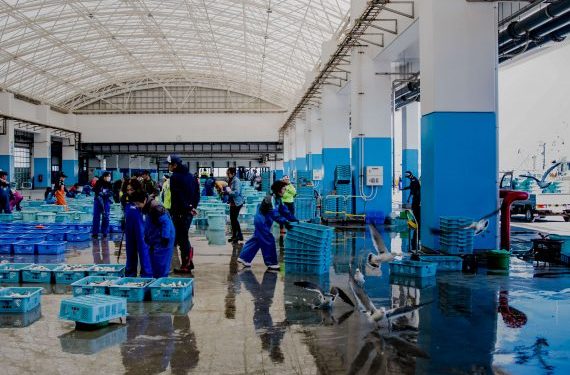In response to China’s import ban on Japanese seafood following the release of treated water from the Fukushima nuclear plant, the US military in Japan has begun to increase its procurement of the nation’s seafood products.
Rahm Emanuel, the US ambassador to Japan, stated that the initiative is a means to counter China’s “economic wars”. He alluded to the possibility of further US efforts to mitigate China’s ban, emphasizing Washington’s commitment to supporting Tokyo amidst China’s economic maneuvers.
Before this ban, China stood as the largest importer of Japanese seafood, purchasing over 100,000 tons of scallops in the previous year. Contrasting this figure, the US’s initial purchase amounted to just below a metric ton of scallops. However, according to Emanuel, this marks the beginning of a long-term contract that will eventually encompass a broader range of seafood. This procurement will cater to the dietary needs of military personnel and will also be made available for purchase in military base shops and restaurants in Japan.
“Our goal is to establish a long-term contract between the US armed forces and the local fisheries and co-operatives in Japan,” expressed Emanuel. He further elaborated on the strategy, stating, “The most effective approach to counteract China’s economic coercion is by supporting the countries or industries in its crosshairs.”
Prior to this move, the US military hadn’t made direct seafood purchases in Japan. Additionally, Emanuel mentioned that the US might reassess its fish import dynamics involving both Japan and China.
China’s Foreign Ministry spokesperson, Wang Wenbin, reacted to Emanuel’s remarks, stating that the role of diplomats is to cultivate friendships among nations rather than “smearing other countries and stirring up trouble.”
Rahm Emanuel has been vocal in recent times, expressing concerns regarding China’s economic policies and its treatment of international businesses.
This development comes amid attempts by senior US officials, including Secretary of State Antony Blinken, to mend relations with Beijing, given the palpable tension between the two economic giants.
The backdrop to this situation is the release of over a million tonnes of treated waste water from the Fukushima nuclear plant, which was severely impacted by the 2011 tsunami. Although Japan maintains the water’s safety—a claim backed by numerous scientists and the United Nations’ nuclear watchdog—China instituted the import ban. Japan has also highlighted similar waste water releases from nuclear facilities in nations including China and France.
Further affirming its stance on the matter, Tokyo regularly issues reports indicating non-detectable radioactivity levels in the seawater near Fukushima.
Highlighting international support for Japan, the Group of Seven (G7) trade ministers recently voiced their collective call for an immediate revocation of bans on Japanese food products.



























